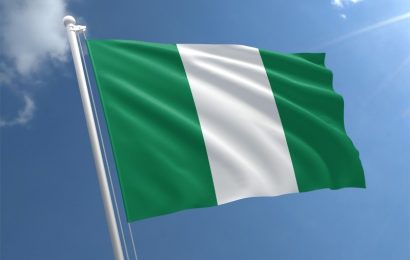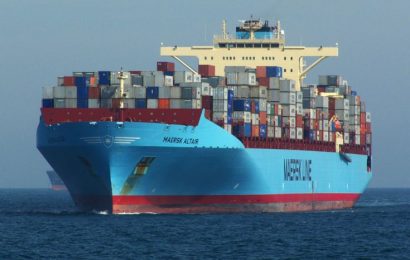By Moses Ebosele, ebosele@hotmail.com —

The Managing Director, NLNG Shipping and Marine Services Limited,
Mr. Abdulkadir Ahmed has intensified campaign for the proper disposal of plastic wastes as part of measures to reduce its harmful effect on the ocean, wildlife and humans.
According to the Managing Director, the NSML Clean Waterways Initiative is focused on highlighting the devastating impacts of plastics, debris, litters and waste in our waterways and by extension the oceans“.
He explained that the awareness campaign is aimed at, not only highlighting the extent of the problem, but also building consensus and alignment for collective action.
Explaining further, the NSML boss said: ’Our Waterways, and by extension the world oceans, are in the depths of a plastic crisis.
’Plastics and marine pollution have found their way into every marine ecosystem in the planet, impacting not only economic activities but also the health of our people and the environment. ’Global statistics show that annually over 8 million tonnes of plastic enter our oceans with over 5 trillion pieces of plastic already floating in our oceans. Scientists warn that by 2050 there will be more plastic (by weight) than fish in the sea with an ever-increasing level of micro-plastics entering the global food chain.
’This calls for action both at the micro and macro levels. It is in light of the above and other environmental considerations that the United Nations’ Sustainable Development Goal 14 (SDG 14) is focused on the need to “conserve and sustainably use the oceans, seas and marine resources for sustainable development”.
’With the oceans covering more than 70% of the surface of the earth, they play a key role in supporting life on earth.
’The ocean provides natural resources including food, materials, substance and energy.
’Increasing levels of debris in the world’s seas, oceans and waterways is having a major and growing economic impact. Oceans, seas and other marine resources are essential to human well-being and social and economic development worldwide.
’Their conservation and sustainable use are central to achieving the 2030 Agenda. The International Maritime Organisation (IMO), taking a cue from the United Nations Environment Programme (UNEP), is also working to help protect the oceans and waterways through several projects around the world.
’The IMO, as the United Nations agency responsible for developing and adopting measures to prevent pollution from ships, and for prevention of pollution by dumping of waste at sea, has an integral role in meeting the targets set out in the United Nations SDG 14.
’For us in Nigeria, various regulatory agencies are at the vanguard of championing this important activity. NIMASA’s Revised Maritime Action Plan on Marine Litter and Plastic (MAP-ML+P) Management in Nigeria is designed to achieve the following objectives:
1. To sustainably reduce marine litter in Nigeria’s Maritime domain to levels where they do not endanger the marine environment.
2. To achieve a behavioural change of coastal communities and urban dwellers on the dangers of marine litter.
3. To achieve cleaner and healthy oceans through collaborations with stakeholders.
4. To enhance Nigeria’s growth through harnessing of the blue economy as one of the economic strategies.
’To ensure a purpose-driven implementation of the National Action Plan, a task force on Marine Litter was constituted and inaugurated to coordinate the full execution of the roadmap.
’The membership of the Task Force was drawn from the various sectors of ocean governance. This transparent involvement of relevant stakeholders including key Ministries, Departments, Agencies, Manufacturers, NGOs and littoral States is aimed at securing public stewardship and effective implementation of the Action Plan.
’NIMASA, continues to embark on clean-up of identified marine litter hotspots and the distribution of sanitation equipment, tools, wastes receptacles to coastal communities. The NSML Clean Waterways Initiative is our little contribution aimed at not only creating awareness on the dangers of unfettered dumping of plastics and wastes into our waterways but also to drive advocacy and action for change at the sub-national and national levels. The initiative is predicated on a “TRIPLE A” strategy of AWARENESS, ADVOCAY & ACTION. Awareness aimed at raising public awareness and educating all stakeholders including local communities on the impact and harmful effect of plastic wastes and debris to aquatic and maritime ecosystems. Advocacy by engendering discussions and pushing forward narratives and ideas with all stakeholders to come up with policies, strategies and solutions to address the issue.






